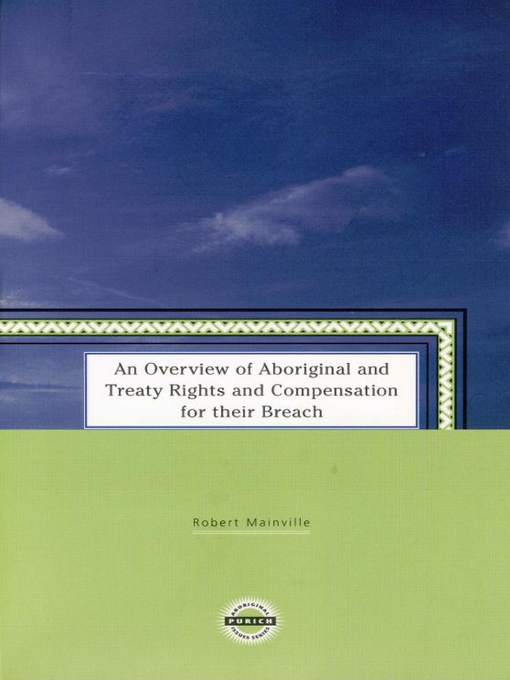A pressing issue today is how to compensate Aboriginal peoples for the infringement of their rights. In this book, Robert Mainville examines Aboriginal and treaty rights in an historical and legal context, explaining their origins and reviewing major court decisions that have defined Aboriginal rights. The author points out that Aboriginal rights include more than Aboriginal title, and stresses the fiduciary relationship between the federal government and Aboriginal peoples. He also discusses the impact of the Canadian constitution on Aboriginal rights, and the limits to the government's ability to infringe upon Aboriginal and treaty rights.
The heart of this book deals with the complex question of compensation for the infringement of Aboriginal and treaty rights. The author begins with the Canadian law of expropriation but argues that, while these principles can provide guidelines for compensation, expropriation law is inadequate to address the issue fully. He then examines American jurisprudence and concludes that the American experience, which involves complex legal maneuverings and narrowly applied principles, has not always led to justice for Native Americans.
Against this background, Mr. Mainville sets out clear and practical principles for determining appropriate compensation when Aboriginal or treaty rights are breached. These principles include: considering the government's fiduciary obligation; applying uniform compensation principles across the country; adequately assessing the impact of the breach on the Aboriginal community as a whole; considering the benefits derived by the Crown and third parties; the need for structured compensation schemes that do not necessarily meet mathematically accurate tests; and assessing third party responsibility for compensation.

